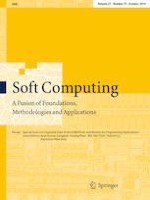09-10-2018 | Methodologies and Application
New operations on pseudo-octagonal fuzzy numbers and its application
Published in: Soft Computing | Issue 19/2019
Log inActivate our intelligent search to find suitable subject content or patents.
Select sections of text to find matching patents with Artificial Intelligence. powered by
Select sections of text to find additional relevant content using AI-assisted search. powered by
